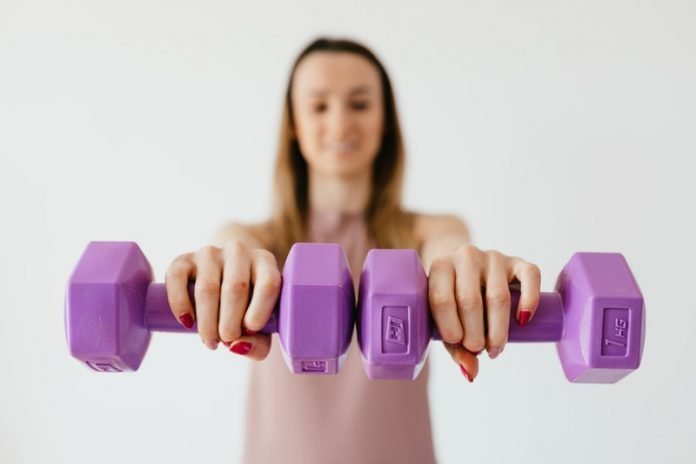
In the US, the prevalence of obesity was 42.4% in 2017/2018, according to a survey of the National Center for Health Statistics (NCHS).
Concurrently millions of people want to lose weight. Physical exercise is an important option to achieve this. After all, more calories are consumed through sport than when sitting, standing, or lying down.
But what influence does sport have on (direct) eating habits?
In a new study from the Technical University of Munich and elsewhere, researchers found that physical exertion can entice those who do sport to eat larger amounts of food more quickly after the training session.
In the study, the team tested 41 healthy participants (23 women, 18 men) aged between 19 and 29 years with an average BMI of 23.7.
The people were assigned to either a 45-minute exercise session or a rest period of equal duration at the first visit and completed the other study condition at the second visit.
In each case, the training group answered an electronic questionnaire before the physical activity about their subjective assessment of hunger and satiety, the preferred amount of food to eat, and choice between foods that differed in the timing of consumption.
After answering the first questionnaire, participants performed 45 minutes of aerobic exercise on a bicycle ergometer.
Immediately afterward, they completed the electronic questionnaire a second time and then a third time after a 30-minute break.
The procedure for the group without training was identical; instead of 45 minutes of physical activity, these participants had a rest break.
The team found that compared to the rest break, the exercise provided a greater increase in the amount of food chosen, both immediately after exercise and 30 minutes afterward.
Physical activity also resulted in a greater increase in preference for immediate food consumption both immediately after exercise and 30 minutes afterward.
The team says they were able to show for the first time that certain characteristics, such as the amount and ‘urgency’ with which a person wants to eat, change over the course of physical exertion.
These findings help develop new interventions to optimize weight loss through exercise.
If you care about weight loss, please read studies about this eating style may help lower blood pressure, improve weight loss and findings of this popular weight loss diet linked to higher heart disease risk, worse gut health.
For more information about bodyweight management, please see recent studies about new way to treat obesity and results showing that this type of olive oil may protect against obesity and inflammation.
The study is published in Nutrients. One author of the study is Prof. Köhler.
Copyright © 2021 Knowridge Science Report. All rights reserved.



